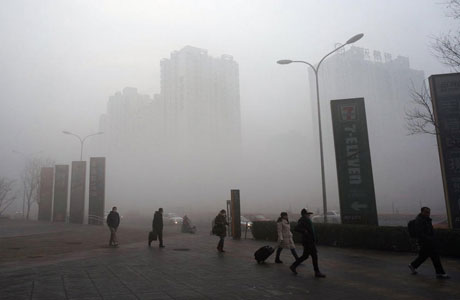China's Ten Hiroshimas a Year
 |
Could the Xi Jinping era see a dramatic improvement in China's environment? The answer must certainly be yes. Technically and administratively, China has the know-how and the government machinery that would let it make meaningful progress to clean up the environment over the next decade. The question is whether its leaders have the political will.

- MOST POPULAR







